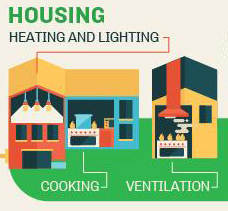
Hardee’s Low Carb Breakfast Bowl: Folded egg, sausage, bacon, ham, cheddar cheese, American cheese, Swiss cheese. Total cholesterol: 630 mg. (Total fat: 58 grams, saturated fat: 23 mg.)
How is it that some studies show eggs increase cholesterol, and some studies don’t? Because, beyond a certain amount, cholesterol in the diet doesn’t have an appreciable effect.
The authors of the study in this post, Eating Cholesterol (Egg Yolk) Found To Raise Blood Cholesterol, said:
“A further increase in the intake of cholesterol probably would not have caused a marked increase in the serum cholesterol, because Beveridge et al. (10) and Connor et al. (11) have shown that once a certain intake level of dietary cholesterol is reached, which is not much beyond the highest level used in our study, further increments will have little additional effect.”
You have to look at the background diet. Is it already awash in cholesterol? The effect from adding eggs will be muted. This mechanism is seized upon by those who claim eggs and other sources of dietary cholesterol are harmless.
Here are some foods’ cholesterol amounts:
- Hardee’s low-carb breakfast bowl: 630 mg
- McDonald’s scrambled eggs (2): 425 mg
- 1 extra large egg: 237 mg
- 4 ounces cooked shrimp: 221 mg
- 2 ounces chicken liver pate: 218 mg
- 4 ounces chicken thighs with skin (about 2): 112 mg
- 4 ounces ground beef patty: 100 mg
- 1/2 cup vanilla ice cream: 98 mg
- 4 ounces white meat chicken breast, no skin: 96 mg
- 4 ounces lobster: 81 mg
- Starbucks blueberry muffin: 70 mg
- 2 ounces cheddar cheese: 58 mg
- 1 cup plain yogurt: 32 mg








